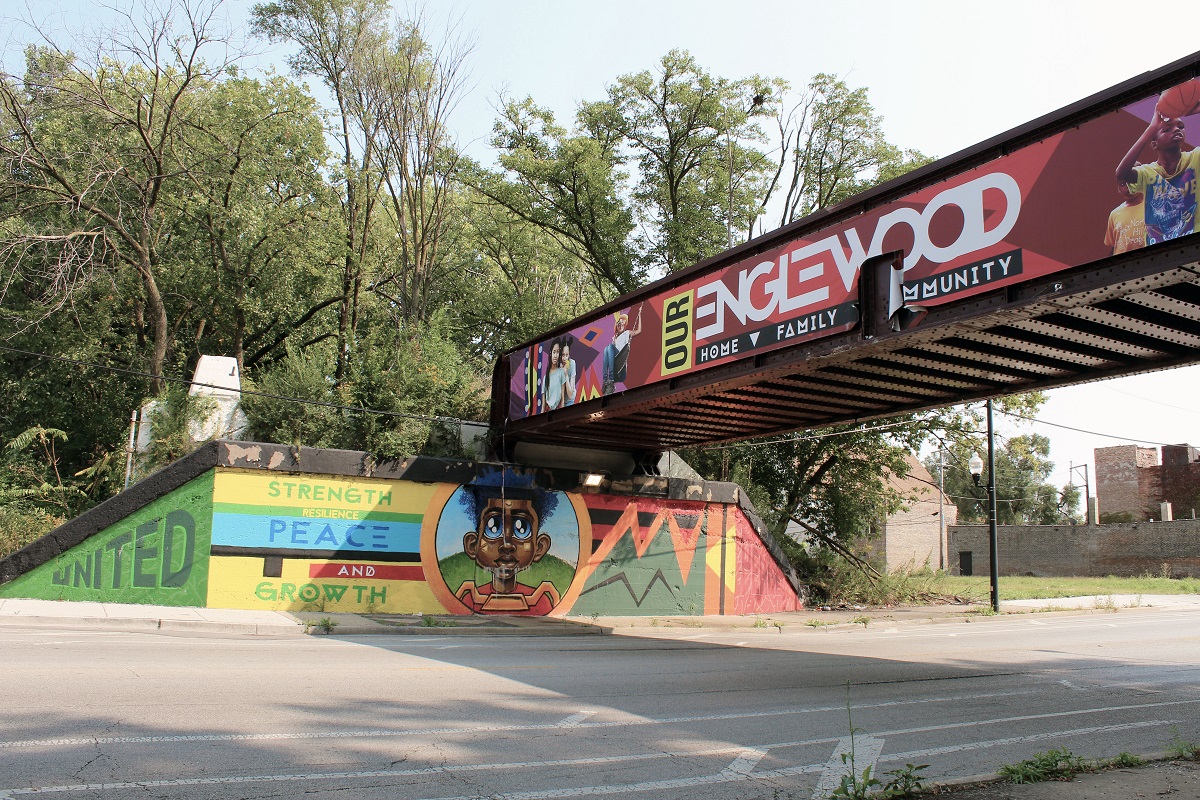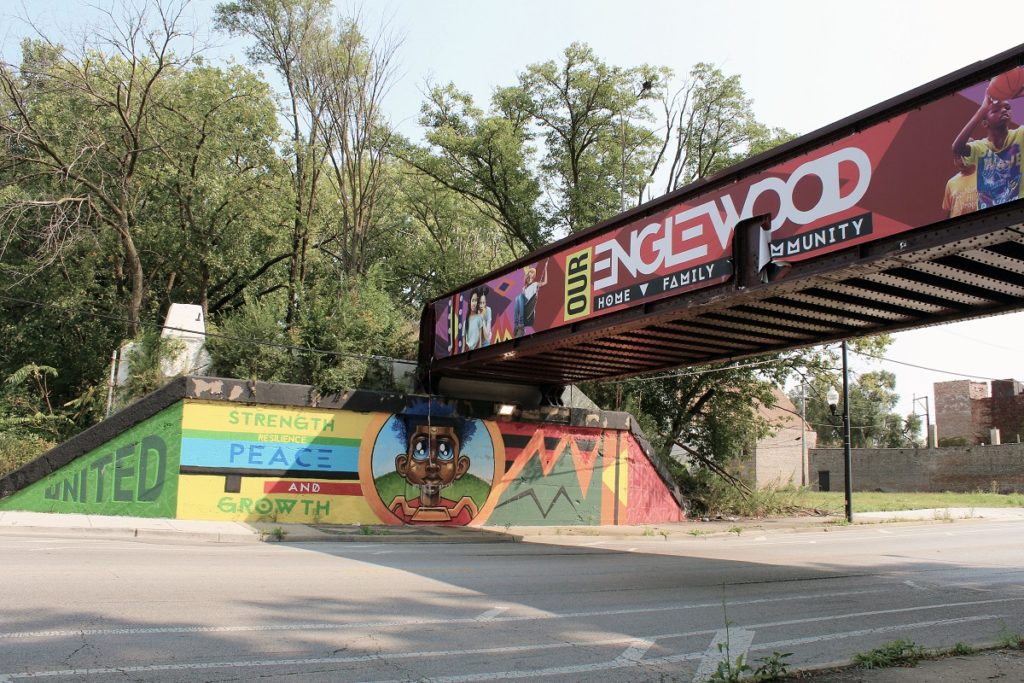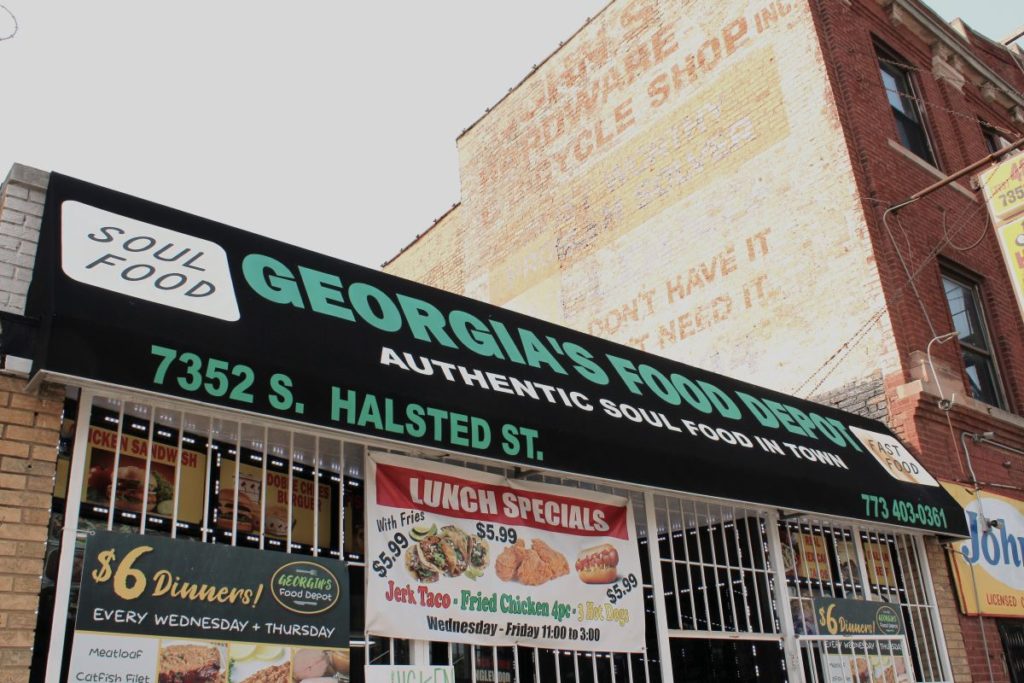- Best Community Development Program: The Re-Up
- Best Mural to Let You Know Where You Are: 59th Street Overpass
- Best New Restaurant to Learn Knife Skills: Haute Brats
- Best New Business Incubator: E.G. Woode
- Best Soul Food: Georgia’s Food Depot
Englewood is rising, piece by piece. Englewood is the home of the biggest drill rappers known in the country, while also being home to a community focused on changing the perception and the reality of what living in Englewood is and can be. We’ve challenged the idea of our community being a food desert, with Whole Foods leaving shortly, by offering free food out of community fridges and by creating our own grocery stores in the most needy areas with Dion’s Dream Fridge and the Go Green on Racine initiative. Being an Englewood native and realizing that all the pieces of improving our quality of life have already been conceptualized and realized by the people of the community has given me so much pride in being part of the fight against decades of structural violence and systemic oppression. I remember staring out the window of my apartment on 59th and Normal imagining what it would be like if the vacant lot across the street could be part of our own urban agricultural infrastructure, then walking to the red line and seeing a community garden managed by local school children just a couple blocks away. Englewood has been putting the pieces of a mosaic of community resilience that can be easily missed if you let the media dictate your perspective of the neighborhood.
When I got involved in the community effort to empower Englewood from within, I felt ashamed of how ignorant I was of the amount of stakeholders putting their blood, sweat, and tears into fighting for my community. The Resident Association of Greater Englewood (R.A.G.E.) opened the door of enlightenment for me, unveiling a menagerie of grassroots organizations, businesses, and changemakers who had been doing the work since before I was even born. I met organizer Cora Butler before I even joined R.A.G.E. or started instructing a literacy program at Primo Center for Women and Children, and little did I know she had been championing civic engagement for Englewood since the 70’s. I didn’t even know what an alderman was when names like Anna Langford, David Moore, Stephanie D. Coleman, and Toni Foulkes started populating my Google search. When I met organizations like R.A.G.E., Teamwork Englewood, Imagine Englewood If, and One Health Englewood I had already settled upon the amount of humility I needed due to the fact that these organizations were already championing the fight needed to make Englewood great again. A community fragmented, piece by piece, ward by ward, had a comprehensive strategy and was led by individuals that could never be appropriately represented in the media or by word of mouth. I proudly did my part teaching literacy at an afterschool program and teaching social studies at one of the local high schools, collecting census data and informing residents on the local healthcare resources, or equipping my neighbors with information on community resources and providing mutual aid through a weekly resource fair. One of the first and most frequent ways I gave back to the community was by documenting the stories of Englewood, and I will continue that journey through this year’s Best of Englewood.
Englewood personifies Chicago in many ways, so when one calls us “the city of broad shoulders,” I can only think of the weight that these changemakers carry for my community. We have community activists that have been doing work for more than forty years either as individuals or through organizations. We have artists and developers that empower the community through creating equitable and creative spaces. We have businesses that showcase our Black Excellence through food and culture. But most of all Englewood has an army of community members who believe in Englewood and its future.
Cordell Longstreath is a veteran, writer, community advocate and activist, ex-teacher and soon to be teacher. He likes food, video games, books, politics, and trolling. You can find him volunteering throughout the city.




